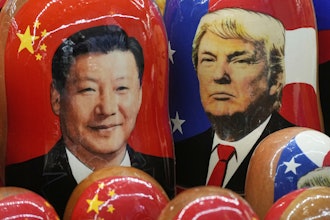
This Friday, Aug. 29, the U.S. de minimis tariff exemption will be suspended following an executive order from President Donald Trump. For years, the exemption allowed goods valued under $800 to enter the U.S. duty-free. While originally designed to simplify customs for small, individual shipments, it evolved into a system used by global e-commerce sellers to move hundreds of millions of packages into the U.S. each year without duties.
The change represents a significant shift for companies operating in the U.S. and abroad. For businesses in the United States' Foreign-Trade Zones (FTZs), the suspension creates new opportunities, but it also signals that policymakers are taking a closer look at how customs policy affects competitiveness, enforcement, and security.
Why Policymakers Made the Move
The administration cited three main reasons for eliminating the exemption: trade fairness, national security, and the prevention of illicit or counterfeit shipments. The exemption had become a pathway for avoiding duties, creating a wide gap between how U.S. companies and foreign sellers were treated.
By suspending de minimis, the federal government is seeking to close that gap. Whether or not one agrees with the approach, the decision reflects growing concern about how the system was being used and its impact on domestic operations.
Implications for Foreign-Trade Zones
U.S. Foreign-Trade Zones have been an important tool for U.S. businesses for decades, offering duty deferral and efficiency in handling imported goods. But U.S. FTZs were excluded from the benefits foreign sellers enjoyed under the de minimis exemption. That inequity discouraged companies from using U.S.-based facilities and shifted activity abroad.
The new policy creates parity by aligning the rules more evenly between foreign sellers and U.S. FTZ users. For U.S. businesses, that means a chance to compete under a more consistent pricing and efficiency framework. For communities that rely on U.S. FTZ operations, it could mean stronger incentives to invest locally and expand operations.
What Manufacturing Executives Should Know
For manufacturers, this policy change may alter sourcing and distribution strategies. Many production operations depend on timely imports of components and materials. With de minimis suspended, supply chains that previously relied on low-value, duty-free shipments may face more adjustments.
At the same time, U.S. FTZs can help manufacturers adapt. By staging imported inputs within a U.S.-based zone, manufacturers can defer duties until goods enter U.S. commerce. That flexibility encourages companies to expand domestic operations rather than move them overseas.
For executives weighing where to locate production, distribution, or assembly functions, U.S. FTZs are likely to become even more valuable in light of this shift. The suspension of de minimis highlights the need to evaluate supply chain strategies not only for cost efficiency but also for resilience and regulatory alignment.
Looking at Short- and Long-Term Effects
In the near term, U.S. companies will see changes to their cost structures that may improve their competitiveness with foreign warehouses. Over time, our hope is that these adjustments encourage greater use of the United States' FTZs, resulting in stronger supply chains, job growth, and more domestic business investment.
That said, the change will also require adaptation. Importers, carriers, and customs officials will need to adjust systems that have been built around the de minimis threshold. How smoothly that transition occurs remains to be seen.
A Step in a Larger Policy Conversation
This is not likely to be the last executive action shaping customs and trade policy. NAFTZ will continue monitoring developments closely and working with policymakers to ensure FTZs remain effective tools for American businesses.
What's most important is that trade rules are fair, predictable, and supportive of long-term growth. The suspension of the de minimis exemption is one step in that direction, though, like any policy change, it brings both opportunities and challenges.
Moving Forward
For NAFTZ and its members, the focus remains on ensuring that FTZs can support U.S. competitiveness. If this new policy leads to stronger supply chains and fairer business competition, that will be a positive outcome. At the same time, we will continue to advocate for trade policies that are clear, balanced, and beneficial for businesses, workers, and consumers across the U.S.
 Jeffrey J. Tafel, President, National Association of Foreign-Trade Zones (NAFTZ)
Jeffrey J. Tafel, President, National Association of Foreign-Trade Zones (NAFTZ)





















